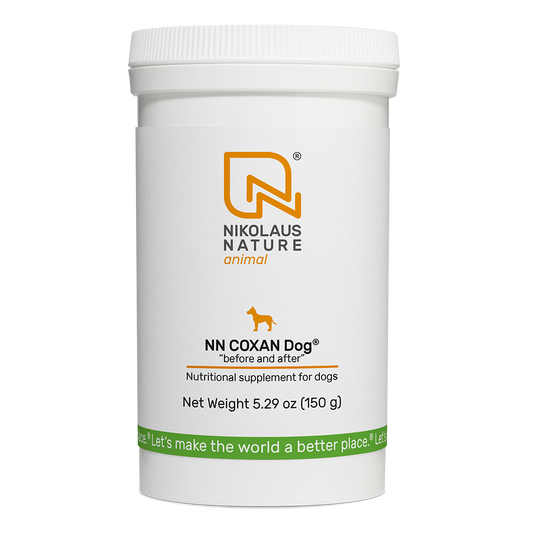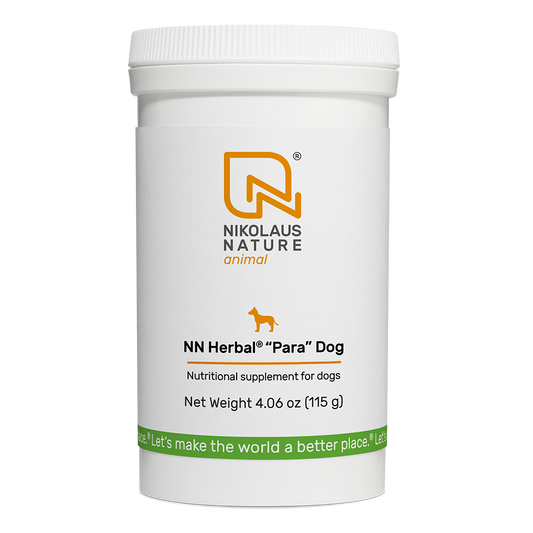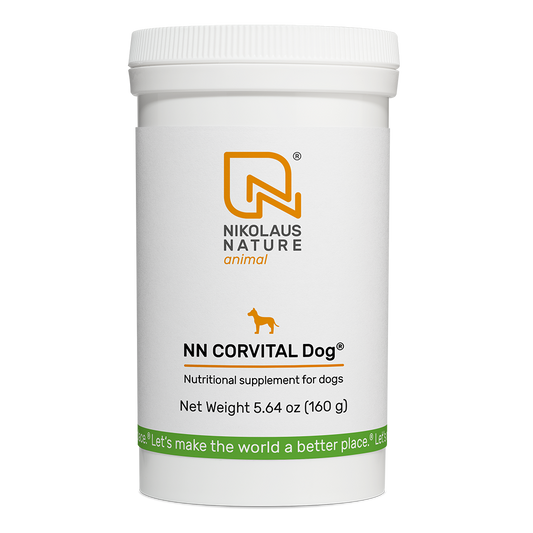Can Grain-Free Diets Cause Heart Diseases In Dogs
The relationship between grain-free diets and heart disease (specifically dilated cardiomyopathy – DCM) in dogs is a complex and ongoing area of investigation. Much research must be done to prove that grain-free diets directly cause DCM.
Studies have shown a correlation between grain-free diets and an increased risk of developing this heart condition. The FDA has investigated this potential link since 2018 to understand the underlying mechanisms and contributing factors.
Keep reading to learn more about grain-free diets, their potential benefits and risks, and the latest findings from the FDA investigation.

What are Grain-Free Dog Food Diets?
Grain-free dog food diets are a type of pet food that does not contain grains such as wheat, corn, rice, oats, barley, rye, soy, or other grains commonly used in dog food. Instead, these diets substitute grains with other carbohydrates like legumes, sweet potatoes, peas, lentils, and quinoa.
The primary goal of grain-free dog food is to provide a nutritionally complete and balanced meal for dogs while avoiding grains as ingredients due to potential sensitivity.
Is Grain-Free Diet Good for Dogs?
Grain-free diets are not inherently bad for dogs. Some dogs may do well on grain-free diets, but others may be at a higher risk of developing nutritional deficiencies or health issues such as dilated cardiomyopathy (DCM).
A grain-free diet is good for dogs or not, depending on the dog’s individual health, breed, and specific dietary needs. Not all grain-free diets are created equal. The quality and composition of ingredients can vary significantly.
Remember, Grains are not essential nutrients for dogs, and they can obtain necessary carbohydrates and other nutrients from alternative sources.
So why are grains added to the pet foods?
Grains were added to dog food to increase volume and reduce costs – not for nutritional reasons. This practice began with the mass production of dog kibble during World War II. Today, many commercial dog foods still list grains like corn or wheat as the main ingredients.
Grain-free dog food removes these grains and replaces them with higher meat content and other nutrient-rich ingredients
Regular Dog Food vs. Grain-Free Dog Food
Regular dog food and grain-free dog food are two popular options for pet owners. The choice between the two depends on dietary requirements, allergies, health conditions, and preferences of the dog.
Dog Food with Grains
Regular dog food typically includes grains as a source of carbohydrates and other nutrients. Dog owners have been using these diets for many years, and they are generally considered safe and nutritionally complete when they are formulated to meet AAFCO (Association of American Feed Control Officials) standards.
Grains can be a good source of energy and nutrition for dogs but can also cause digestive issues and allergies in some dogs. For example, wheat and corn are among the most common food allergens for dogs. And their by-products can also cause skin problems and itching.
Grain-Free Dog Food
Grain-free dog food, as mentioned earlier, does not contain traditional grains. Instead, it uses other alternative carbohydrate sources such as sweet potatoes, potatoes, and vegetables.
Some dogs with sensitive tummies or grain allergies benefit from grain-free diets as they reduce the risk of digestive issues and allergic reactions. However, the risk of grain-free diet and DCM is still present.
It is very important to choose high-quality, grain-free dog foods made by that are formulated by veterinary nutritionists and that they ensure the grain-free food provides all the nutrients a dog needs in a balanced way.
What is Dilated Cardiomyopathy (DCM)?
Dilated cardiomyopathy (DCM) is a heart condition that affects the heart's ability to pump blood effectively. In DCM, the heart muscle becomes thin and weakened. It causes the chambers of the heart to dilate or enlarge.
This dilation and weakening of the heart muscle impair the heart's pumping ability. It reduces the blood flow and causes heart failure.
It is a common condition in certain breeds of dogs, such as Doberman Pinschers, Great Danes, Boxers, and Cocker Spaniels.
Symptoms of Dilated Cardiomyopathy in Dogs
The symptoms of DCM in dogs can vary depending on the severity of the condition and include:
- Exercise intolerance or fatigue
- Coughing or difficulty breathing
- Abdominal distension (due to fluid buildup)
- Loss of Muscle Mass
- Loss of appetite
- Cold Feet
- Weakness or collapse
How to Diagnose DCM in Dogs?
DCM is diagnosed through a combination of physical examination, medical history, and diagnostic tests such as:
- Electrocardiogram (ECG) to assess heart rhythm and electrical activity.
- Chest X-rays to evaluate heart size and lung patterns.
- Echocardiography (ultrasound of the heart) to assess heart structure and function.
- Blood tests to check for potential underlying causes or complications.
Causes of DCM
DCM can be caused by various factors, including:
- Genetic predisposition: Certain breeds, such as Doberman Pinschers, Boxers, and Great Danes, have a higher risk of developing DCM due to genetic factors.
- Nutritional deficiencies: Deficiencies in nutrients, such as taurine, carnitine, and cysteine, are linked to the development of DCM in some dogs.
- Metabolic disorders: Conditions like hypothyroidism or diabetes can increase the risk of DCM.
- Toxins or medications: Exposure to certain toxins or medications can potentially damage the heart muscle and lead to DCM.
- Myocarditis: Inflammation of the heart muscle (myocarditis) can also cause DCM.
- Infectious diseases: Viral infections or certain bacterial or parasitic diseases can sometimes also involve heart diseases.
The exact cause of DCM in many cases remains unknown.
Is Grain-Free Food Linked to Health Conditions in Dogs?
There is growing concern and ongoing research regarding a potential link between grain-free diets and a type of heart disease called dilated cardiomyopathy (DCM) in some dogs. DCM can caused by genetic and other factors, as mentioned above.
FDA investigation and research have identified a potential association between certain grain-free diets – particularly those high in legumes – and an increased risk of DCM in dogs.
It's important to note that not all dogs on grain-free diets will develop DCM, and not all cases of DCM are linked to diet. Yet, the correlation is strong enough that dog owners should remain cautious.

The FDA Investigation and Research Findings
In 2018, the FDA began investigating a potential link between canine dilated cardiomyopathy (DCM) and grain-free dog foods. The investigation was initiated after an increase in DCM cases, which were reported in dog breeds that were not typically prone to the disease.
The FDA collected data from January 2014 to April 2019, which revealed 524 reports of DCM (515 in dogs and 9 in cats). Most of these reports were submitted after the FDA's initial public alert in July 2018.
The investigation focused on dog foods containing legumes like peas or lentils, other legume seeds, or potatoes as primary ingredients. The FDA found that over 90% of the reported DCM cases involved dogs eating grain-free diets, and 93% of these diets contained peas and/or lentils. Some diets also contained potatoes.
The FDA's analysis of the reported cases shows that most cases were related to dry dog foods, although raw, semi-moist, and wet foods were also represented. The investigation also looked at the most common pet food brands named in the DCM reports, with Acana, Zignature, and Taste of the Wild being the top three.
To better understand what might be causing the problem, the FDA conducted product testing on both grain-free and grain-containing dog foods. They examine factors like protein, fat, fiber, starch, and amino acid content. The results showed no significant differences in average nutrient levels between the two types of food.
The FDA also investigated the role of taurine – an amino acid essential for heart health in dogs. While most grain-free products had methionine-cystine values (precursors to taurine) above the minimum requirement. The FDA is still studying how taurine metabolism is involved in DCM cases.
In addition to product testing, the FDA collaborated with veterinary professionals and pet owners to gather detailed dietary histories and medical records of affected animals. This information is important in understanding the connection between diet and DCM.
Taurine Deficiency and its Role in DCM
Taurine is an amino acid essential for normal heart function, and its deficiency is associated with DCM in certain dog breeds.
A study published in the Journal of the American Veterinary Medical Association (AVMA) in 2018 found that dogs with DCM had lower blood and whole-body taurine concentrations compared to healthy dogs. Furthermore, dogs eating grain-free diets had lower taurine levels than those eating grain-based diets.
Another study published in the journal PLOS ONE in 2020 analyzed the taurine content in various commercial dog foods and found that grain-free diets had significantly lower levels of taurine compared to grain-based diets.
While the exact mechanisms are still being investigated, the collective evidence suggests that nutrient deficiencies or imbalances – particularly in taurine and related nutrients – may be a key factor in the link between grain-free diets and DCM in dogs.
The FDA's investigation is ongoing, and they continue to gather information to determine if there is a definitive link between certain diets and DCM in dogs. They encourage pet owners and veterinarians to report any suspected cases of diet-related DCM through their Safety Reporting Portal
What is the Latest Update from FDA's Diet-Related DCM Investigation?
As of December 2022, the FDA has stated that they will not release further public updates on the investigation into the potential link between diet and DCM in dogs until there is meaningful new scientific information to share.
However, here are some key points from their most recent update:
- Reports of DCM have decreased: The FDA received 255 reports of DCM in dogs between August 2020 and November 2022, which is a lower rate than in previous years. It's unclear whether this is due to fewer cases occurring or less reporting.
- No definitive cause identified: While most diets associated with DCM reports contain legumes or pulses (like peas and lentils), there is no conclusive evidence these ingredients are inherently dangerous. The FDA emphasizes that multiple factors, including genetics and underlying health conditions, may play a role.
- Collaboration continues: The FDA is still encouraging research and collaboration with veterinarians, academia, and the pet food industry to better understand the issue.
Note: The FDA has not issued any recalls of pet foods potentially linked to DCM, as there is no definitive evidence that these diets are inherently unsafe.
What Should Dog Owners Do?
As the FDA still investigating the connection between grain-free foods and DCM, dog owners should take the following steps to make their pets healthy:
Consult a Veterinarian
If you are considering switching your dog to a grain-free diet or have concerns about their diet, consult with a veterinarian to discuss the best options for your dog's specific needs and health status.
Monitor Your Dog's Health
Keep an eye out for signs of DCM, such as exercise intolerance, coughing, or difficulty breathing. If you notice any unusual symptoms, consult with your veterinarian promptly.
Choose High-Quality Dog Food
Make sure that your dog diet meets the nutritional requirements established by reputable organizations like the Association of American Feed Control Officials (AAFCO) or the World Small Animal Veterinary Association (WSAVA). Avoid switching to a grain-free diet without consulting a veterinarian, as this can lead to nutritional deficiencies.
Report Suspected Cases
If you suspect that your dog has DCM or any other health issue related to their diet, report it to the FDA through their Safety Reporting Portal. This information helps the FDA better understand the issue and make informed decisions about pet food safety.
Stay Informed
Stay up-to-date with the latest information from the FDA and other reputable sources on the potential link between grain-free diets and DCM. This will help you make informed decisions about your dog's diet and health.
By following these steps, dog owners can help their pets receive the best possible care and minimize the risk of DCM and other health issues related to diet.

FAQ About Grain-Free Diets and Heart Diseases In Dogs
Is my dog at risk if they've been eating grain-free?
Grain-free diets are associated with an increased risk of DCM in some dogs, but not all dogs eating grain-free diets will develop this condition. Other factors like genetics and underlying health conditions can also play a role. If your dog has been eating grain-free diets and shows no signs of heart disease, they are not necessarily at risk.
Are all grain-free diets dangerous?
No, not all grain-free diets are dangerous. The issue lies in the potential for some grain-free formulas to be deficient in certain nutrients (like taurine) that are essential for heart health. Plus, the quality of ingredients in grain-free diets can vary significantly.
Be cautious of boutique and exotic ingredients in grain-free diets, as they are not manufactured with the same level of nutritional expertise and quality control standards as established brands.
What are the best food options for my dog?
The best food option for your dog depends on their individual needs and preferences. Commercially available dog foods that have a nutritional adequacy statement are nutritionally complete and suitable for dogs. Grain-inclusive foods are not better or worse than grain-free foods.
The choice between grain-inclusive and grain-free foods should be based on your dog's specific needs and your veterinarian's recommendations
Sources:
-
The Association of American Feed Control Officials (AAFCO),
(https://www.aafco.org/) -
Canine Dilated Cardiomyopathy (DCM),
(https://www.vet.cornell.edu/hospitals/services/cardiology/canine-dilated-cardiomyopathy-dcm#) -
Taurine deficiency and dilated cardiomyopathy,
(https://www.ncbi.nlm.nih.gov/pmc/articles/PMC6292607/) -
FDA’s Work on Potential Causes of Non-Hereditary DCM in Dogs,
(https://www.fda.gov/animal-veterinary/animal-health-literacy/questions-answers-fdas-work-potential-causes-non-hereditary-dcm-dogs) -
FDA Investigation into Potential Link between Certain Diets and Canine Dilated Cardiomyopathy,
(https://www.fda.gov/animal-veterinary/outbreaks-and-advisories/fda-investigation-potential-link-between-certain-diets-and-canine-dilated-cardiomyopathy#next) -
The Safety Reporting Portal of FDA,
(https://www.safetyreporting.fda.gov/SRP2/en/Home.aspx?sid=d2e20e29-717c-43e7-95f5-a52c954e8974) -
World Small Animal Veterinary Association,
(https://wsava.org/) -
Nutritional inadequacies in commercial vegan foods for dogs and cats.
(https://journals.plos.org/plosone/article?id=10.1371/journal.pone.0227046) -
Diet-associated dilated cardiomyopathy in dogs,
(https://avmajournals.avma.org/view/journals/javma/253/11/javma.253.11.1390.xml)







